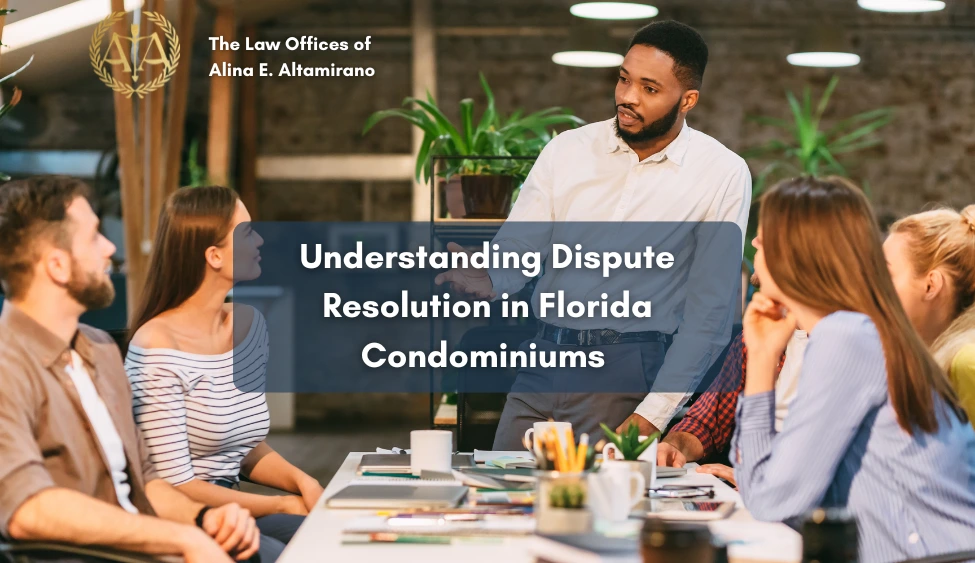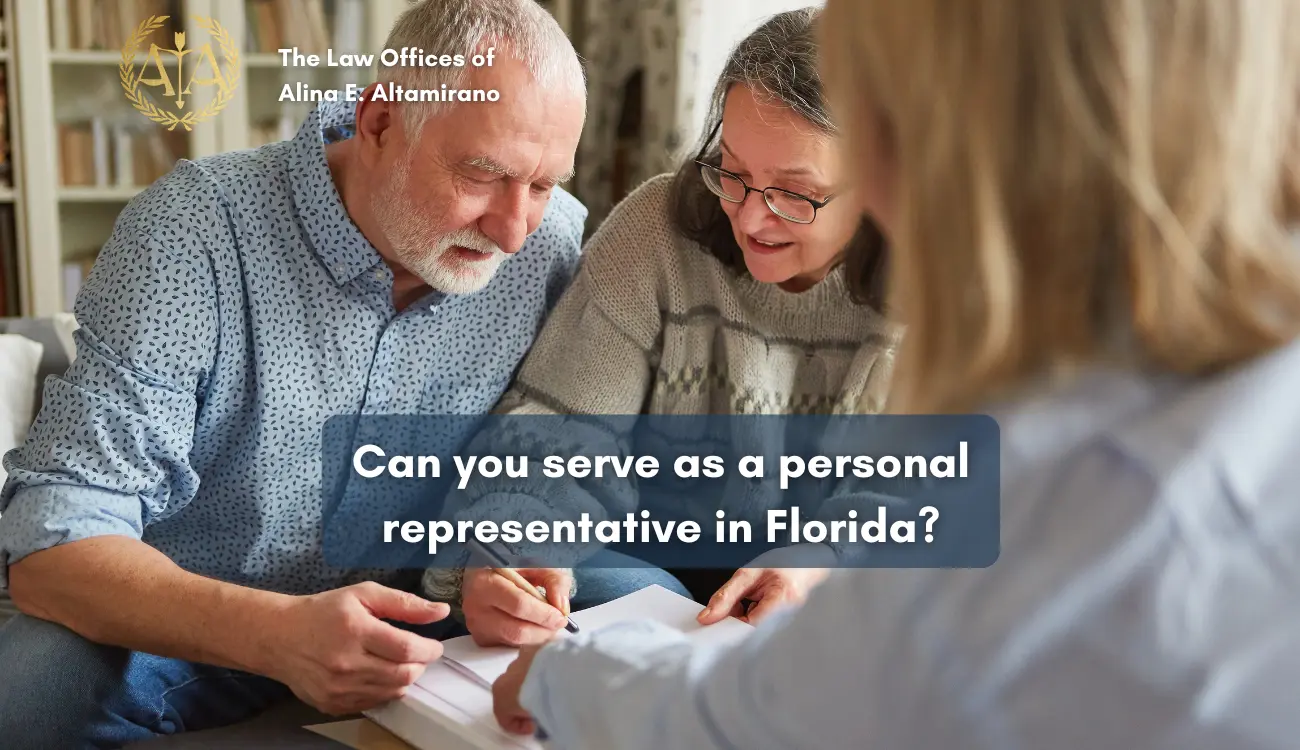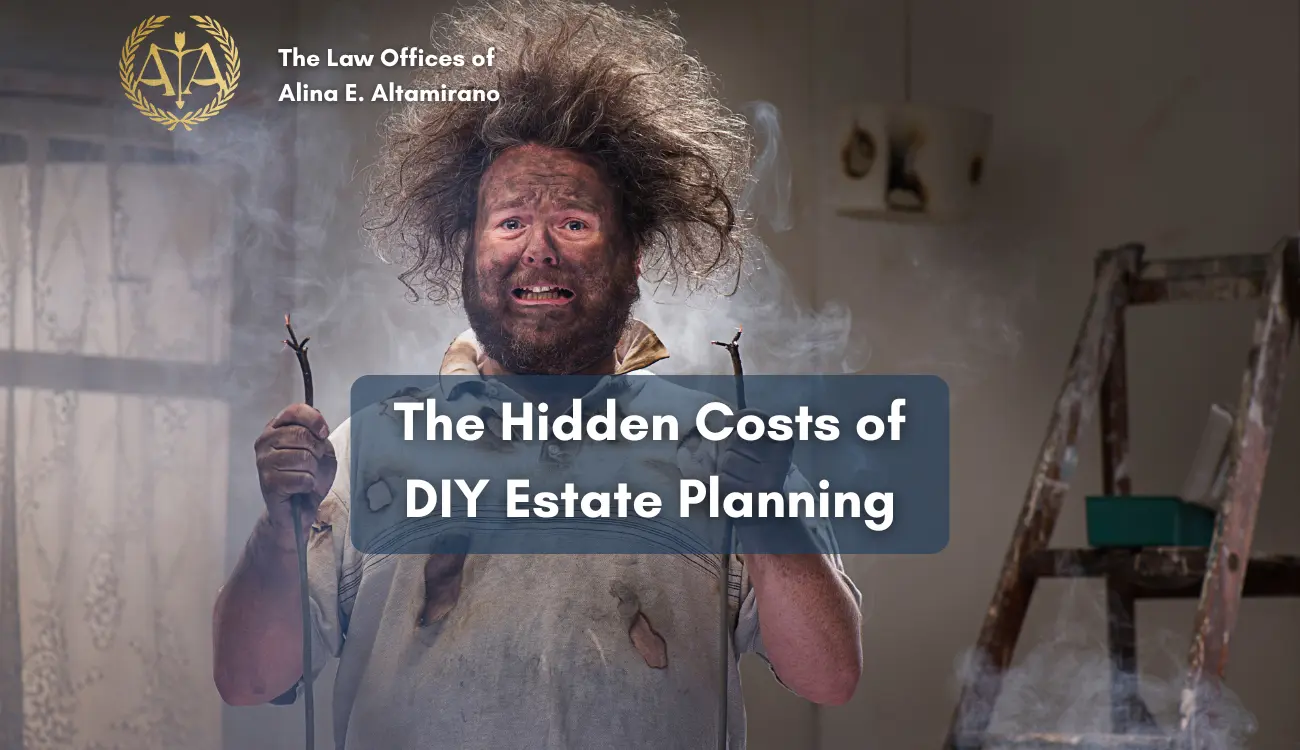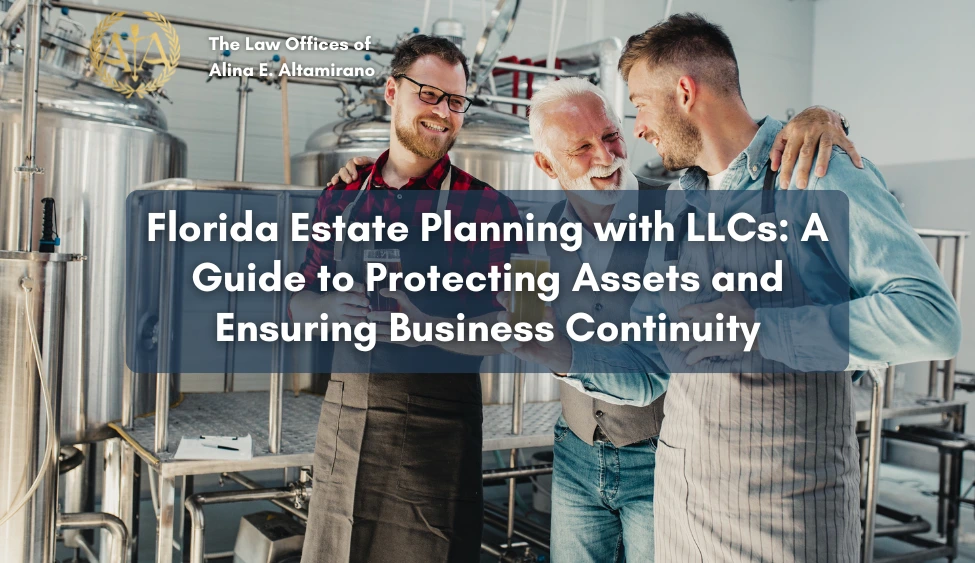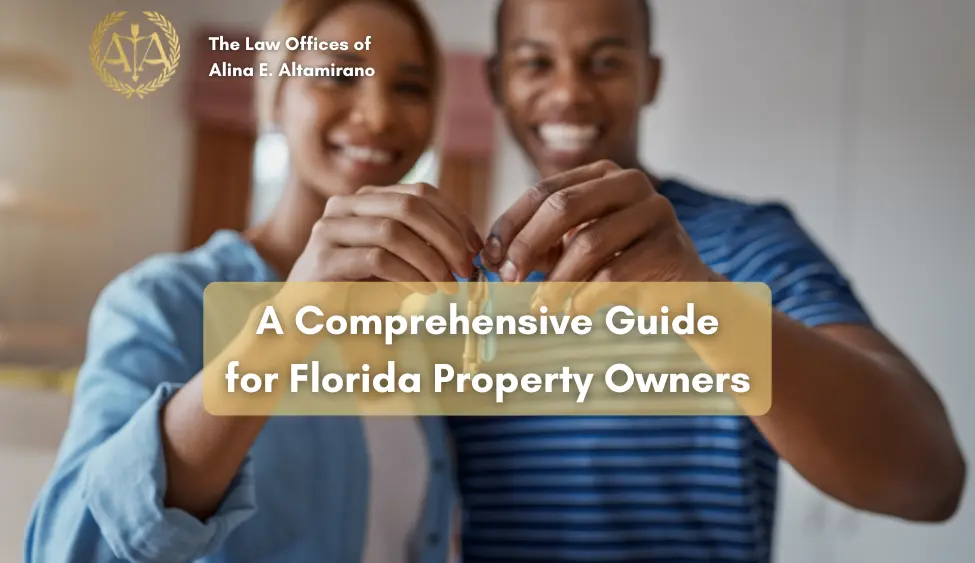Learn about dispute resolution mechanisms for Florida condominium associations, including mediation and arbitration, and discover how our expert legal guidance can help you navigate these processes effectively.
Disputes are an inevitable part of condominium living. Whether it’s a disagreement over common area usage, election results, or enforcement of association rules, conflicts can arise that require resolution. But how should these disputes be handled in Florida condominium associations? Are costly and time-consuming lawsuits the only option? Fortunately, Florida law provides alternative dispute resolution mechanisms that can help associations and unit owners resolve conflicts efficiently and effectively.
What Are the Options for Dispute Resolution?
In Florida, condominium associations have access to two primary forms of alternative dispute resolution: voluntary mediation and mandatory nonbinding arbitration. Understanding these options can help you determine the best course of action when a dispute arises.
- Voluntary Mediation
Mediation is a process where a neutral third party, known as a mediator, helps the disputing parties reach a mutually acceptable solution. Unlike arbitration or litigation, mediation is not about deciding who is right or wrong. Instead, it’s about finding common ground and creating a solution that all parties can agree on.
Why Choose Mediation?
- Confidentiality: Mediation is a private process, which means the details of the dispute and the resolution are not made public.
- Flexibility: Mediation allows for creative solutions that might not be possible in a courtroom.
- Control: The parties involved have more control over the outcome, as they work together to reach an agreement rather than having a decision imposed upon them.
Mediation is often the first step in resolving disputes because it is less adversarial and can preserve relationships between the parties involved. But what happens when mediation doesn’t result in a resolution?
- Mandatory Nonbinding Arbitration
If mediation fails, or if the parties choose to bypass it, Florida law requires many types of condominium disputes to go through mandatory nonbinding arbitration before they can proceed to litigation. This form of arbitration is overseen by the Florida Department of Business and Professional Regulation (DBPR).
How Does Nonbinding Arbitration Work?
- Neutral Arbitrator: A neutral arbitrator reviews the evidence and arguments presented by both sides and makes a decision.
- Nonbinding: The arbitrator’s decision is not final or enforceable unless both parties agree to accept it. If either party disagrees with the decision, they can request a trial de novo, which is essentially starting over in court.
- Expedited Process: Arbitration is typically faster and less expensive than going to court, making it an attractive option for resolving disputes.
However, if the issue remains unresolved after arbitration, litigation may be the next step. This is why it’s crucial to have skilled legal representation to guide you through the process and protect your interests.
Disputes in condominium associations don’t have to end in lengthy and expensive court battles. Understanding the alternative dispute resolution mechanisms available in Florida—such as voluntary mediation and mandatory nonbinding arbitration—can save both time and money, while also preserving relationships within the community. With the right legal support, you can navigate these processes effectively and achieve a resolution that works for everyone involved.
Why Choose Our Law Firm to Aide in Condo Disputes ?
Navigating the complexities of dispute resolution in Florida condominiums requires not only a deep understanding of the law but also experience in handling these specific types of cases. Alina E. Altamirano, P.A. specializes in condominium law, offering personalized and focused legal guidance to help associations and unit owners resolve disputes efficiently and effectively.
We understand that every dispute is unique, and we are committed to providing tailored solutions that meet the specific needs of our clients. Whether you are considering mediation, preparing for arbitration, or need to escalate the matter to litigation, our firm is here to support you every step of the way.
Ready to Resolve Your Dispute? Have you encountered a conflict within your condominium association that needs resolving? Don’t wait until the situation escalates. Contact us today at (954) 466-5383 to discuss your options for mediation, arbitration, or legal representation. Let us help you find the best path to resolution.
The information contained herein is provided for education/information purposes only and should not be construed as legal advice.

